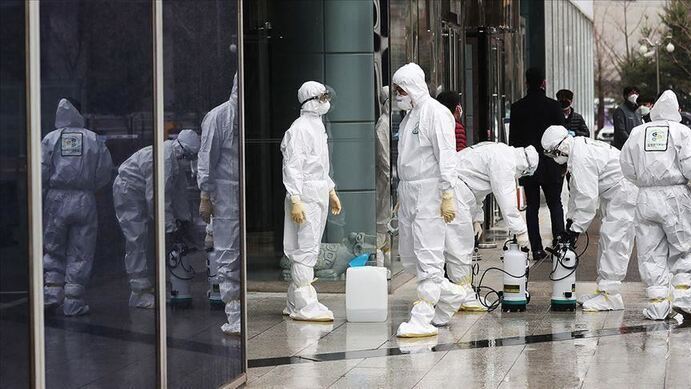What to Know About FDA-Approved Vaccines and Latest CDC Data
August 29, 2024 — As COVID-19 cases surge once again across the United States, public health officials are urging Americans to stay informed and take necessary precautions. With the latest data from the Centers for Disease Control and Prevention (CDC) showing a marked increase in infections, the focus has shifted to the importance of vaccination. The Food and Drug Administration (FDA) has recently approved updated COVID-19 vaccines designed to better protect against new variants, and the CDC is advising eligible individuals to receive these shots as part of the ongoing effort to curb the spread of the virus.
The Current Surge: A Closer Look at the Numbers
COVID-19 cases have been steadily rising over the past few weeks, with some regions reporting their highest numbers since last winter. According to the CDC’s latest update, the increase is driven by the emergence of new variants that are more transmissible and partially evade immunity from previous infections or older vaccines.
Hospitalizations and deaths, while not at the levels seen in the early phases of the pandemic, are also on the rise, particularly among vulnerable populations such as the elderly and those with pre-existing health conditions. The uptick in cases has prompted renewed calls from health officials for people to remain vigilant and to follow recommended public health guidelines, including mask-wearing in crowded indoor spaces and practicing good hand hygiene.
FDA-Approved Vaccines: What You Need to Know
In response to the evolving threat posed by new COVID-19 variants, the FDA has approved updated versions of the COVID-19 vaccines. These vaccines have been specifically formulated to provide better protection against the latest strains of the virus, including those responsible for the current surge in cases.
The newly approved vaccines are available from major pharmaceutical companies like Pfizer-BioNTech and Moderna. These updated shots are designed to target specific mutations in the virus’s spike protein, which is responsible for its ability to infect human cells. By doing so, the vaccines aim to enhance the body’s immune response, providing stronger and more durable protection against infection.
Who Should Get the Updated Vaccines?
- Adults and Adolescents: The FDA recommends that all individuals aged 12 and older receive the updated COVID-19 vaccine, especially those who have not been vaccinated in the past six months. This is crucial for boosting immunity, particularly as the virus continues to mutate.
- Young Children: For children aged 6 months to 11 years, the FDA has authorized the use of a lower-dose version of the updated vaccine. Parents are encouraged to vaccinate their children to protect them against severe illness.
- Immunocompromised Individuals: Those with weakened immune systems are at higher risk of severe outcomes from COVID-19. The FDA recommends that these individuals receive the updated vaccine and consider additional doses as advised by their healthcare providers.
The Latest CDC Guidance: Staying Safe During the Surge
The CDC has updated its guidance in light of the current increase in COVID-19 cases. Here’s what the agency is advising:
Get Vaccinated: The most important step you can take to protect yourself and others is to get vaccinated with the updated COVID-19 vaccine. The CDC emphasizes that vaccines remain the most effective tool in preventing severe illness, hospitalization, and death.
Wear Masks in High-Risk Settings: The CDC recommends wearing masks in indoor public spaces, especially in areas with high transmission rates. This is particularly important for individuals who are unvaccinated, immunocompromised, or living with someone at higher risk of severe illness.
Stay Informed: Keep up with the latest COVID-19 data in your area. The CDC’s COVID Data Tracker provides real-time information on case counts, hospitalizations, and community transmission levels.
Practice Good Hygiene: Continue to wash your hands frequently with soap and water for at least 20 seconds. Use hand sanitizer with at least 60% alcohol when soap and water are not available.
Consider Testing: If you experience symptoms of COVID-19 or have been exposed to someone with the virus, consider getting tested. Early detection can help prevent further spread and ensure timely medical care.
Looking Ahead: Preparing for the Fall and Winter
Public health experts are warning that the coming fall and winter months could see a further increase in COVID-19 cases, as people spend more time indoors and respiratory viruses typically circulate more widely. The updated vaccines, along with other preventive measures, are seen as key tools in managing the anticipated rise in infections.
The CDC is also closely monitoring the development of new variants and is prepared to adjust its recommendations as needed. In the meantime, the agency is encouraging everyone to stay proactive about their health.
Flu Season Considerations: With the flu season approaching, the CDC advises that individuals get both their flu shot and the updated COVID-19 vaccine. Co-administration of these vaccines is safe and effective, and it can provide crucial protection against both viruses.
Public Health Messaging: Public health campaigns are ramping up to ensure that people are aware of the importance of vaccination and the availability of the new vaccines. These efforts are particularly focused on reaching populations that have been hesitant or have had limited access to vaccines in the past.
The Ongoing Battle Against COVID-19
As COVID-19 cases rise once again, the message from health officials is clear: vaccination is more important than ever. The FDA’s approval of updated vaccines provides a critical opportunity to enhance protection against the virus and its evolving variants. By staying informed, getting vaccinated, and following CDC guidance, individuals can help curb the spread of COVID-19 and protect their communities.
The road ahead may still have challenges, but with the tools now available—updated vaccines, effective public health strategies, and a commitment to collective action—there is hope that the impact of the current surge can be minimized. Public health officials are urging everyone to do their part in this ongoing battle against COVID-19, emphasizing that the fight is far from over, but with vigilance and cooperation, it is one that can be won.





